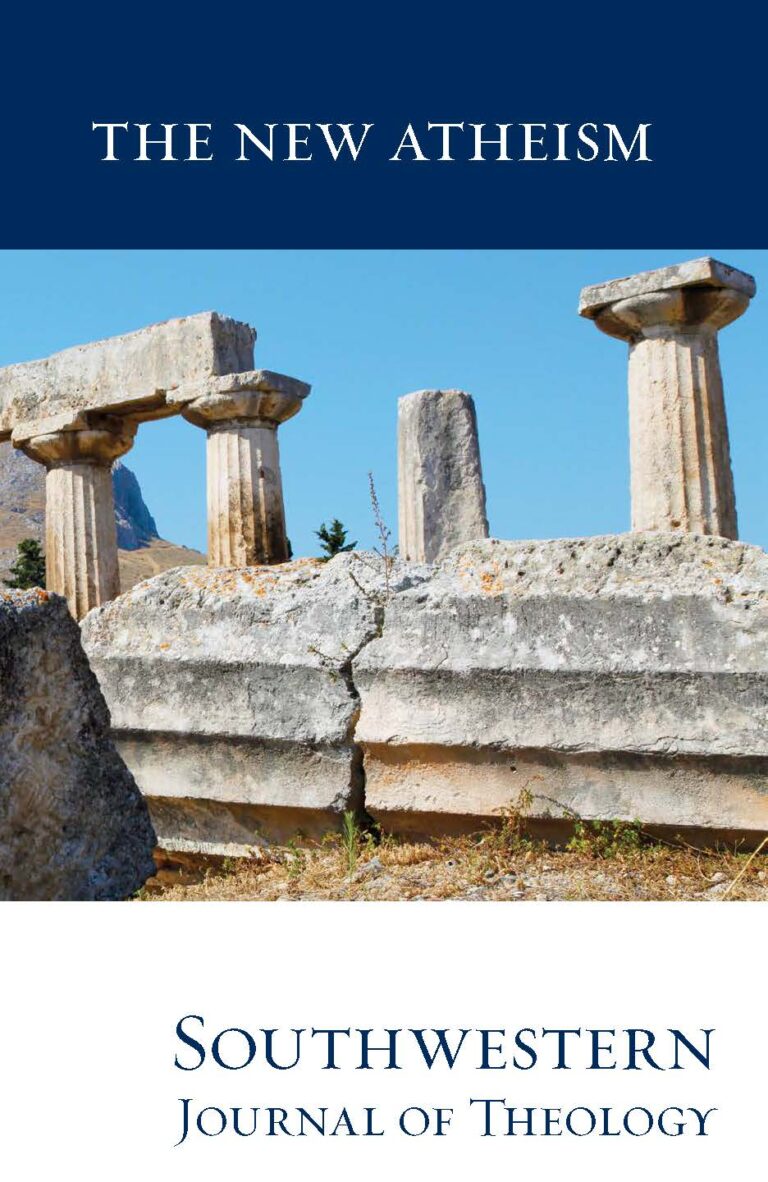
The New Atheism
Southwestern Journal of Theology
Volume 54, No. 1 – Fall 2011
Managing Editor: Malcolm B. Yarnell III
By Ben Witherington III. Downers Grove: IVP Academic, 2010. 838 pages. Hardcover, $50.00.
This second volume of New Testament studies by Ben Witherington follows a course of exploring the theological and ethical issues found within the corpus of the whole New Testament text. This work begins with connecting it to the first volume, as well as creating a “Prolegomena” question of whether it is possible to really find and develop a consistent theological and ethical trajectory within the New Testament. The solution to that dilemma is found in the ethical frame cast by Jesus himself. That frame is that of a cruciform image, one of sacrificial love to be understood and followed in the light of the new eschatological situation created by Christ (30–32; cf. 492). Witherington in his stylistic manner captures the uniqueness of the “symbolic universe” of Jesus and his impact on the theology and ethics of the New Testament writers:
Jesus sees himself as the straw that stirs the drink. He is the gamechanging performer. He is the kingdom-bringer. He is the Son of Man savior figure meant to establish dominion on earth forever. The events that will change the eons and history as well stand before him, whereas for all the New Testament authors these first eschatological events stand behind them, and they have the benefit of hindsight and retrospective analysis.
In this second volume Witherington seems to create three sets of groupings on the issues presented, although he does not subdivide them in that distinct manner. The first section (Chapters 1 to 3) deals with interpretive orientations on the symbolic universe, or thought world of Jesus and the New Testament writers. The second section (Chapters 4 to 7), in contrast to Witherington’s insistence that theology and ethics should be held together, is an exploration of what he calls “the census of the consensus” of theological themes in the New Testament. It is fair to recognize that Witherington does make a conscious effort to blend ethical application into his theological discussions, and ethical explorations are customarily shown to have a theological formation and basis for action. The third section is five chapters (8 to 12) on Christian ethics in which he creates an analysis of a unique grouping of all of the books of the New Testament. These five chapters on ethics analyze groups of books, each of which reflects a unique symbolic world perspective. After a chapter of overview of ethical orientations (chapter 8), the author sets forth a chapter on the ethics of Jesus and his moral influence over his followers. He then groups 10 books (Matthew, John, James, Jude, Hebrews, 1–3 John, 1 Peter, and Revelation) in a study of ethics for Jewish Christians, followed by two chapters on ethics for Gentile Christians, including Paul’s writings as well as Mark, Luke and 2 Peter. His final chapter is an effort to demonstrate that there is a “matrix of meaning” or a commonality in all of the theology and ethics of the New Testament, which is that Jesus Christ has a unique role in creating a lasting “indelible image” of God, his kingdom, and his eternal presence in the world.
The thoroughness of this second text and its organization in exploring the theological and ethical themes of the New Testament presents a challenging, and yet fruitful, exercise for any pastor or theology student. There is ample evidence that Witherington has the conviction that the New Testament is a collection of God inspired writings, which have an undeniable and unavoidable importance for those who would be serious followers of Jesus Christ.





